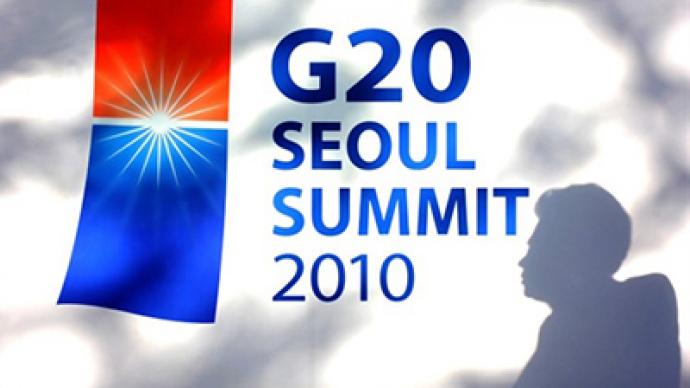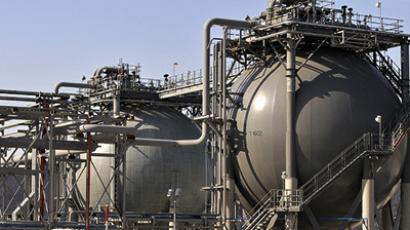Russia and the Seoul G20 summit

Ahead of the G20 summit in South Korea Business RT spoke with Chris Weafer, Chief Strategist at Uralsib about the major issues on the agenda and the implications for Russia.
RT: Do you expect the G20 summit to solve the imbalances in global currencies and trade which threaten to make the crisis worse?CW: “Not at this summit. I think the summit is more likely to expose the differences between the different countries on these issues, particularly in the area of imbalances, and the so-called competitive devaluation of currencies. So, I think that investors that have been looking for the same sort of outcomes that we saw at the first summit 18 months ago, which produced a rally in global markets and a lot of optimism. I think this time round its going to be quite disappointing. What it will do, I guess, having exposed these differences, will now lead to, perhaps, a more focused debate for, perhaps, coming to an agreement early next year.”RT: Russia wants its companies to be able to invest in developed nations, do you think that it will make some progress in Seoul? CW: “Well again, I don’t really expect any progress in this meeting at all. I think the differences being exposed is what we will get. But this is a key issue for Russia. This has been a real bugbear over the last several years. Russia has accused the West, if you like, of deliberately blocking investment from Russian companies into the West, and Europe in particular. Of course we had that big row in 2005 when Russia tried to buy an investment in Airbus, EADS industries, and last year, of course, Russia tried to buy General Motors Opel unit. And the reason is because Russia wants to establish these relationships with established foreign companies, so that they can bring back expertise to Russian industries, and like cooperation in equities arrangement, and helping the Russian companies to modernize and become more efficient, to make up, if you like, for the lack of international experience in Russia companies. So there is a key part of Russia’s development and a key policy wish to pursue.”RT: We have heard from countries like Brazil and China complaining about the US Federal Reserve’s decision to pump an extra $600 billion into the economy. But we haven’t really heard many complaints from Russia, why is that?CW: “Well, because initially Russia could actually benefit from that. I mean it is in a different situation to the other so-called BRIC countries. Russia has not had a substantial amount of capital inflows in the last couple of years. In fact, quite the opposite – outflows in the last two years have totaled almost $200 billion. So Russia could do with reversing some of that, and taking some money back. Also the rouble is at the cheaper end of the band, so Russia could certainly sustain some rouble appreciation, again which would benefit the investment case. And then, frankly, QE, which is having the effect of weakening the dollar, and the counterbalance of that is weaker dollar means higher oil price and metals prices, which boosts Russia’s trade position as well as its fiscal position. So, at least initially, Russia is one of the beneficiaries of QE and capital flows. That may change of course, later in the year, but for now the priority is to get money in.”RT: At the last G20 the focus was very much on saving countries from a financial meltdown. It has changed somewhat, and countries, economies seem to be going their own way. Now what are the risks involved in doing this?CW: “Well I think you have just said it there. Countries going their own way. Because the G20 in April 2008 was very much unified on what needed to be done to pull the world out of recession and to prevent a deeper depression, as it were, so they were very united then. Now the differences have really emerged. Big differences between the strong exporting countries, such as China and Germany, who specifically do not want to target trade balances because that would undermine their economies and, on the other hand the US, which has been talking about fairness in currencies and trying to prevent a competitive devaluation. Of course the QE policy has had exactly that effect on the dollar. The dollar has been very weak and of course, its already helping the US economy to improve. So we have major difference between countries like Germany and China and the US and Europe over what should be done.”RT: And in your opinion what is the best strategy?CW: “I don’t believe that they are actually going to be able to come up with any unified policy. I think the best we could hope for is, perhaps, the role of the dollar in global trade will be reduced. And I think that this effort to kind of create a new reserve currency, I think that is more likely to gain momentum. I think if the dollar’s position in global trade is reduced then a lot of these problems will be less significant than they are today.”














